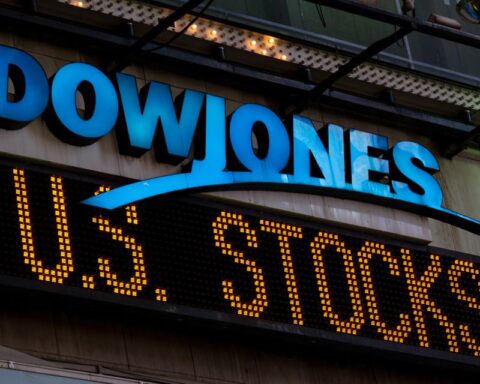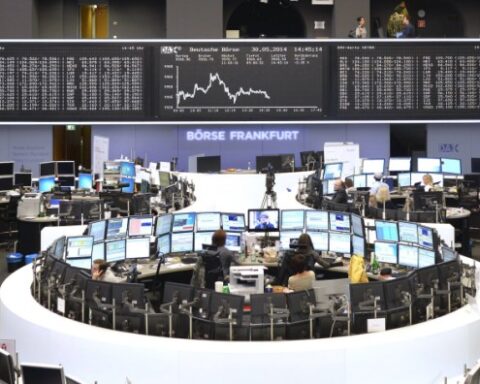The stock exchange serves as a market where financial instruments like stocks, bonds and commodities are traded.
A stock exchange is a marketplace where securities, such as stocks and bonds, are bought and sold.
Stock Exchange market is a vital component of a stock market. It facilitates the transaction between traders of financial instruments and targeted buyers.
Bonds are typically traded Over-the-Counter (OTC), but some corporate bonds can be traded on stock exchanges.
Stock exchanges allow companies to raise capital and investors to make informed decisions using real-time price information. Exchanges can be a physical location or an electronic trading platform. Though people are typically familiar with the image of the trading floor, many exchanges now use electronic trading.
It is a platform where buyers and sellers come together to trade financial tools during specific hours of any business day while adhering well-defined guidelines.
However, only those companies who are listed in a stock exchange are allowed to trade in it.
Stocks which are not listed on a reputed stock exchange can still be traded in an ‘Over The Counter Market’. But such shares would not be held high in esteem in the stock exchange market.
How Does it Work?
Stock markets are organized platforms where buyers and sellers come together to trade shares of publicly listed companies. At their core, these markets operate on the principle of supply and demand, with share prices fluctuating based on companies’ perceived value and overall market conditions. When more people want to buy a stock than sell it, the price typically rises, while the opposite is true.
Stock markets facilitate both a primary and a secondary market. The primary market is where new stocks are first issued through initial public offerings (IPOs).
Modern stock markets largely operate electronically, with sophisticated computer systems matching buy and sell orders almost instantaneously.
Here, companies sell shares directly to investors, raising capital for business operations or expansion. Once these shares are in circulation, they enter the secondary market, where most daily trading occurs. In the secondary market, investors trade existing shares among themselves, with the company no longer directly involved in these transactions.
Stock exchanges, such as the New York Stock Exchange (NYSE) or NASDAQ, provide the infrastructure for these trades to take place. They maintain orderly markets, ensure compliance with regulations, and disseminate real-time price information.
Purpose of Stock Exchanges
Stock exchanges act as an agent for the economy by facilitating trade and disseminating information. Below are some of the ways exchanges contribute:
- Raising Capital
Through initial public offerings (IPO) or issuing of new shares, companies are able to raise capital to fund operations and expansion projects. This provides companies with avenues to increase growth. - Corporate Governance
Companies that are publicly listed on a stock exchange must conform to reporting standards that are set by regulating bodies. This includes having to regularly and publicly report their financial statements and earnings to their shareholders.
The actions of a company’s management are constantly under public scrutiny and directly affect the value of the company. Public reporting helps ensure that management will make decisions that benefit the goals of the company and its shareholders, thereby acting efficiently.
- Economic Efficiency
In addition to encouraging management efficiency, exchanges also facilitate economic efficiency through the allocation of capital. Stock exchanges provide an avenue for individuals to invest their cash, as opposed to merely saving these funds. This means that the capital that would otherwise be untouched is utilized towards economic benefits, resulting in a more efficient economy.
In addition, exchanges also provide liquidity, as it is relatively easy to sell one’s holdings. By providing liquidity and real-time price information on company shares, the stock exchange also encourages an efficient market by allowing investors to actively decide the value of companies through supply and demand.
Why Stock Markets Are Important
Stock markets are integral to modern economies.
They provide companies with access to capital by allowing them to sell shares to the public, enabling businesses to fund growth, innovation, and expansion.
Beyond capital raising, stock markets facilitate the efficient allocation of resources.
They do this through the price discovery process, where the prices of stocks are determined in real time by the collective actions of buyers and sellers.
This mechanism helps ensure that capital is directed towards the most promising and productive enterprises.
Investors, through their buying and selling decisions, signal which companies they believe will succeed and grow—and those which may not.
For investors, stock markets provide opportunities to grow wealth over time. By purchasing shares, individuals and institutions can participate in the financial successes (or failures) of companies.
Stock markets also serve as barometers of broad economic health and investor sentiment. Market indices, such as the S&P 500 or Dow Jones Industrial Average, provide snapshots of overall market performance, often reflecting broader economic trends and expectations.
The influx of capital received from IPOs drives economic development, job creation, and technological advancement, benefiting society as a whole.
Notable Stock Exchanges
1. New York Stock Exchange (NYSE)

Founded in 1792, the New York Stock Exchange is by far the largest exchange in the world. As of March 2018, the NYSE’s market capitalization was US$23.12 trillion.
2. NASDAQ
Founded in 1971, NASDAQ is a US-based stock exchange. With a market capitalization of US$10.93 trillion as of March 2018, it is the second-largest in the world by market capitalization. Many tech and growth firms choose to be listed on the NASDAQ.
3. Shanghai Stock Exchange (SSE)
Founded in November 1990, the Shanghai Stock Exchange is the fourth-largest exchange in the world. It reported a market capitalization of US$5.01 trillion in March 2018. There are two types of stocks listed on the SSE, ‘A shares’ and ‘B shares’. Shares are quoted in RMB, with trading in A shares historically restricted to domestic investors.
In July 2018, China announced additional plans to allow foreign investors to access A shares through domestic brokerages. B shares are quoted in USD and are open to domestic and foreign investors alike.
Listing Requirements
All companies that wish to go public must satisfy certain reporting requirements as outlined by the securities commissions of their respective jurisdictions.
In the United States, the Securities and Exchange Commission dictates that companies must discuss and publish their financial statements, as well as make other disclosures. These are published in the form of quarterly and annual reports.
On top of these requirements, in order to be listed on an exchange, a company must also satisfy the requirements of the stock exchange they wish to be listed on. Below are some examples of listing requirements by the three aforementioned exchanges. Listing requirements may also differ for initial public offerings (IPO).
New York Stock Exchange (NYSE):
- Pre-tax income for the past 3 years must be at least US$10,000,000
- The market capitalization of publicly held shares must be at least US$100,000,000
- Publicly held shares must be greater than 1,100,000
NASDAQ:
- Pre-tax income for the past 3 years must be at least US$11,000,000
- The market capitalization of publicly held shares must be at least US$45,000,000
- Publicly held shares must be greater than 1,250,000
Shanghai Stock Exchange (SSE):
- Capital stock must exceed RMB¥50,000,000
- Publicly issued shares must account for at least 25% of all shares; if the company’s capital stock exceeds RMB¥400,000,000, publicly issued shares must account for at least 10% of all shares
- No major legal violations in the past three years or fraudulent records in the company’s financial reports
Please note this is not an exhaustive list of the requirements to be listed in each respective stock exchange.
More information about stock exchanges on our website americanstocknews.com






